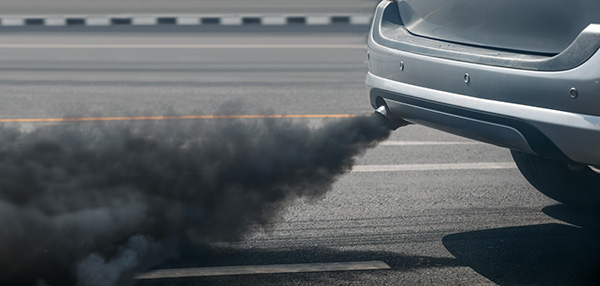
Seeing black smoke pouring out of your car's exhaust can be alarming. Not only does it indicate a problem with your vehicle, but it also contributes to environmental pollution. But what exactly causes this issue? Understanding the underlying causes can help you address the problem promptly and avoid further damage to your car. We will share the common reasons behind black smoke from the exhaust and how you can tackle them.
Fuel Mixture Issues
One of the primary causes of black smoke is an improper fuel mixture. When too much fuel and not enough air are combined in the combustion chamber, it results in incomplete combustion. This can happen due to a faulty fuel injector, a clogged air filter, or a malfunctioning oxygen sensor. The excess fuel doesn't burn completely and exits the exhaust as black smoke.
Checking and replacing a dirty air filter can sometimes resolve this issue. However, if the problem persists, it's advisable to inspect the fuel injectors and oxygen sensors. Faulty components should be repaired or replaced to ensure a proper air-fuel mixture and efficient combustion.
Faulty Fuel Injectors
Fuel injectors are responsible for spraying fuel into the combustion chamber. Over time, they can become clogged or start leaking, leading to an incorrect amount of fuel being injected. This not only causes black smoke but also decreases your vehicle's fuel efficiency and performance.
Regular maintenance, including using fuel system cleaners, can keep the injectors in good condition. If you suspect a fuel injector problem, have them professionally cleaned or replaced. Addressing this early can prevent further engine damage and improve your car's overall performance.
Issues with the Turbocharger
In turbocharged engines, the turbocharger plays a critical role in increasing the engine's efficiency by forcing more air into the combustion chamber. If the turbocharger is failing or damaged, it can lead to an imbalance in the air-fuel ratio, causing black smoke.
Symptoms of a failing turbocharger include a loss of power, whining noises, and excessive exhaust smoke. Regularly inspecting and maintaining your turbocharger, such as ensuring proper oil levels and clean air filters, can prevent such issues. If necessary, seek professional help to repair or replace a damaged turbocharger.
Engine Oil Leaks
Another common cause of black smoke is engine oil leaking into the combustion chamber. This can happen due to worn-out piston rings, valve seals, or a malfunctioning PCV (Positive Crankcase Ventilation) valve. When oil burns along with the fuel, it produces thick black smoke.
Regularly checking your engine oil level and looking for signs of leaks can help catch this issue early. If you notice a significant drop in oil levels or see oil on the spark plugs, it's time to have your engine inspected. Replacing worn-out seals and gaskets can prevent oil from entering the combustion chamber and eliminate black smoke.
Malfunctioning EGR Valve
The EGR (Exhaust Gas Recirculation) valve recirculates a portion of the exhaust gasses back into the combustion chamber to reduce emissions. If the EGR valve is stuck open or clogged, it can disrupt the combustion process, leading to black smoke.
Cleaning the EGR valve or replacing it if necessary can restore proper function. Regular maintenance of the EGR system is crucial to ensure your vehicle runs efficiently and stays environmentally friendly.
Poor Quality Fuel
Using low-quality or contaminated fuel can also result in black smoke from the exhaust. Poor quality fuel may not combust properly, leading to incomplete combustion and excess soot production.
Ensure you're using high-quality fuel from reputable sources. Adding fuel additives can help clean the fuel system and improve combustion. If you suspect contaminated fuel, draining the fuel tank and refilling it with fresh fuel can resolve the issue.
Keep your car in top condition and eliminate black smoke. Contact Advanced Auto Care Center Florida for expert troubleshooting and repairs!